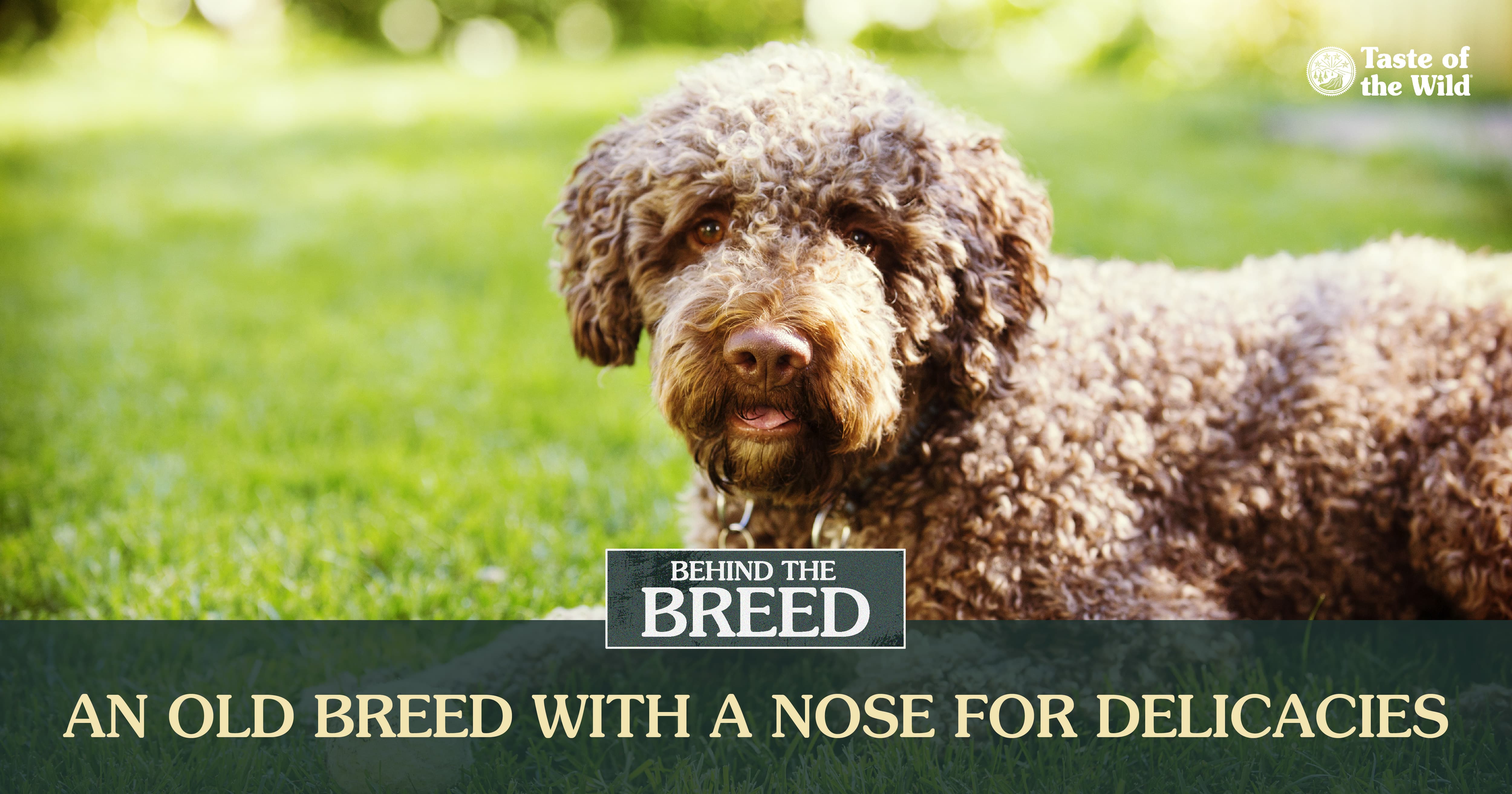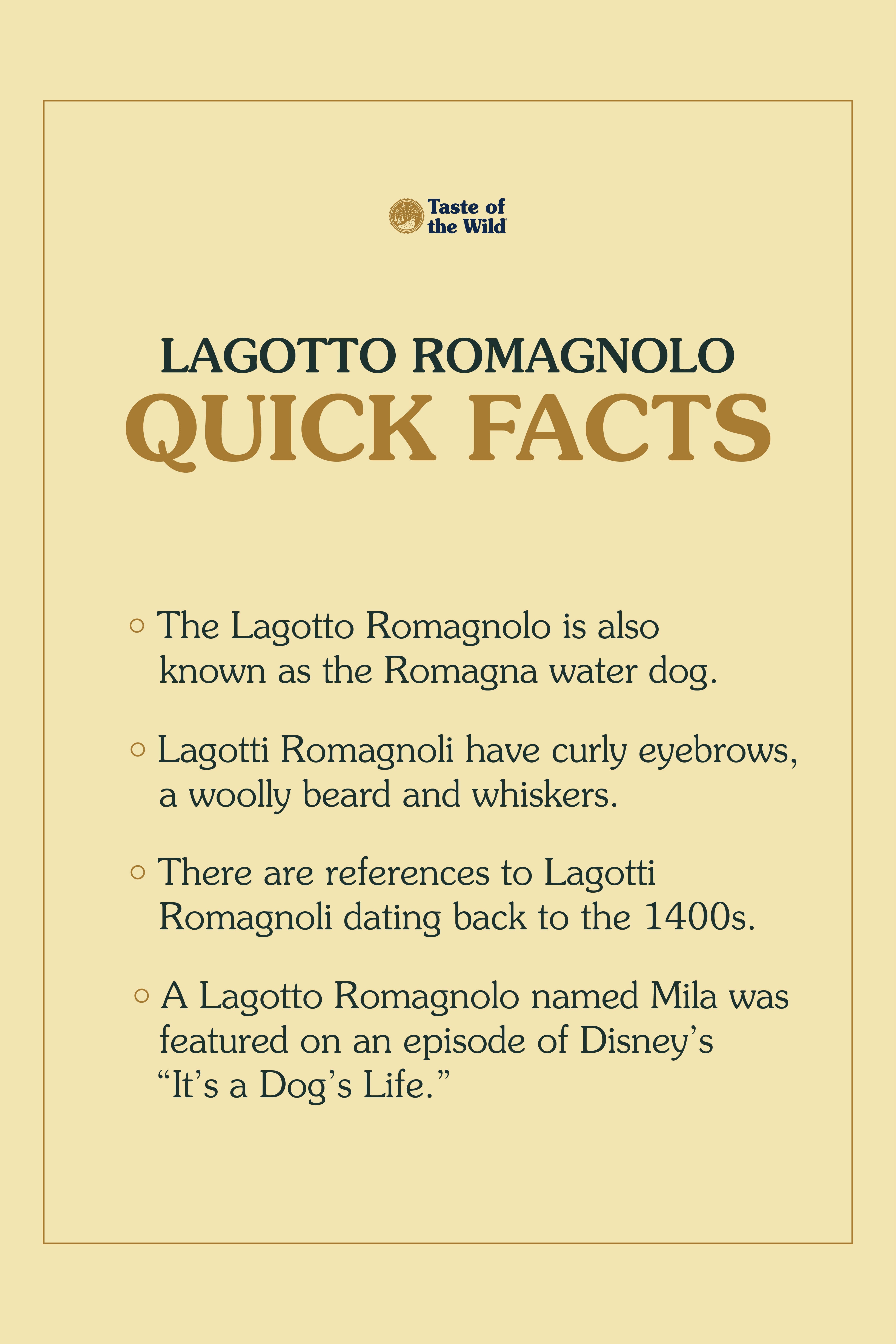
What happens when you can’t do your job anymore? You adapt and become an expert at your new one! That’s what happened with dogs of the Italian Lagotto Romagnolo (pronounced Lah-GOH-toe Ro-man-YO-lo) breed.
These water-loving workers were originally bred for retrieving waterfowl for hunters in the Northern Italy marshes. But when the land was developed and the marshes disappeared in the 19th century, the Lagotti Romagnoli (that’s the plural version) were trained for a new job — to be the best truffle hunters in the world. Lagotti Romagnoli are the only purebred breed recognized for their abilities to sniff out truffles, which are delicious but pricey delicacies enjoyed by people. Training Lagotti to sniff out — but not eat — truffles seems like it would be a challenge!
These curly-haired super-sniffers are muscular, medium-sized dogs that live for around 17 years and weigh up to 35 pounds. They are great for people who are looking for a low-shed breed because their waterproof double coat rarely sheds. Keep in mind, though, that their thick curly coat still needs to be groomed so it doesn’t become matted.
Boisterous and playful, Lagotti Romagnoli love their humans, following a routine and having a job to do. When they’re not sticking by their human’s side, they’re happy splashing about in water or using their exceptional nose for a good cause, like urban search and rescue or detecting a medical problem (e.g., low blood sugar in a person with diabetes).
If you’re thinking about bringing a Lagotto Romagnolo into your family, make sure you have the time and the area for them. These intelligent dogs need to be mentally stimulated and allowed to exercise daily. They are friendly with children, cats and other dogs as long as they were socialized well as puppies.

RELATED POST: Behind the Breed: Golden Retrievers
The information in this blog has been developed with our veterinarian and is designed to help educate pet parents. If you have questions or concerns about your pet's health or nutrition, please talk with your veterinarian.
